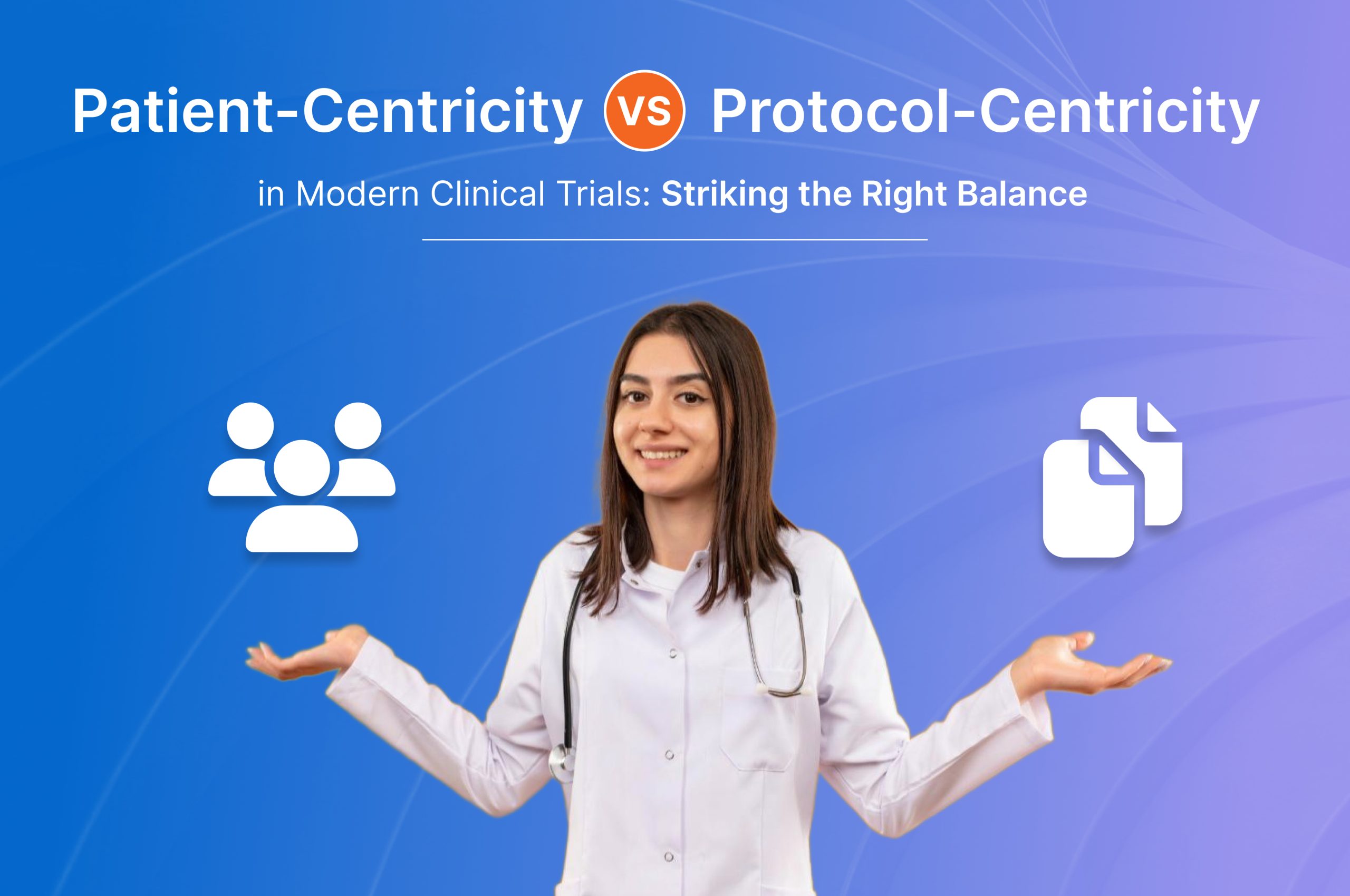The world of healthcare and technology is changing rapidly. With AI being deployed to health tech and patient-centricity being upheld as the crux of every clinical trial, join us as we take a peek into what the future holds for clinical trials.
The current cumbersome and inefficient format of clinical trials has cost sponsors billions of dollars sunk into dead-end product research. The creation and subsequent trials of safe and effective drugs do not come cheap, but they do not have to be the veritable sinkhole of time and resources they currently are. With the advancement of technology and a growing understanding of what makes patients tick, both mentally and physically, the silver lining of being able to streamline, improve and advance the process of clinical trials is becoming increasingly visible.
The future of clinical trials seems on the brink of a revolution, with powerful, predictive AI taking over repetitive, automatable tasks, wearable medical devices, and smart technologies to monitor patients right from the comfort of their homes, helping sponsors gain actionable insights drawn from vast lakes of previously unobtainable data. The industries of healthcare, technology, and medicine are converging to form a powerful trifecta that could change the very structure of human life.
But for clinical trials (and society) to reach these utopias, a paradigm shift in the way clinical trials are approached is critical. The cost of a clinical trial can range anywhere between $40 million and $120 million, and the process could drag out over a decade. It is easy to say that given the time and resource-intensive nature of a clinical trial, there are significant motivations on both sides of the table to lessen the financial and human burden and more importantly, make it easier for life-saving drugs to enter the market. Here is our vision of what the future of clinical trials looks like 10 years from now.
- Harnessing the Power of Big Data: In the future, clinical trials will increasingly leverage the power of big data to enhance their effectiveness. With the exponential growth of healthcare data, including electronic health records, genomic information, wearables, and patient-reported outcomes, researchers will have access to a vast pool of real-world evidence. This wealth of data will enable more comprehensive patient profiling, personalized treatment strategies, and an improved understanding of disease progression, leading to more accurate results and tailored therapies.
- Virtual and Decentralized Trials: The traditional model of clinical trials, involving strict site visits and in-person interactions, is undergoing a profound transformation. Virtual and decentralized trials are becoming more prevalent, enabled by telemedicine, remote monitoring technologies, and digital health platforms. These trials eliminate geographic barriers, increase patient participation rates, and enhance data collection through real-time monitoring. Patients can now participate from the comfort of their homes, reducing the burden of travel and offering a more patient-centric approach to research.
- Artificial Intelligence and Machine Learning:Artificial Intelligence (AI) and Machine Learning (ML) are poised to revolutionize clinical trials. These technologies can assist in patient recruitment, identify suitable candidates for trials, optimize trial design, and analyze vast amounts of data rapidly. AI algorithms can detect patterns, predict outcomes, and provide valuable insights to guide decision-making. By automating repetitive tasks and streamlining processes, AI and ML will save time, resources, and costs while improving the quality and efficiency of clinical trials.
- Adaptive Trial Designs: In the future, clinical trials will embrace adaptive trial designs, allowing for real-time modifications based on accumulating data. This flexibility enables researchers to optimize protocols, adjust sample sizes, and refine treatment arms, resulting in quicker identification of successful interventions. Adaptive trials reduce the number of participants needed, decrease trial duration, and enhance the probability of success, ultimately accelerating the translation of research findings into clinical practice.
- Patient Engagement and Collaboration: Empowering patients and involving them as active partners in the research process will be a cornerstone of future clinical trials. Patient engagement strategies will focus on enhancing communication, providing comprehensive information, and ensuring that trial protocols are designed with patient preferences and needs in mind. Collaborative platforms, support networks, and patient advocacy organizations will play a pivotal role in fostering patient-centered research, driving recruitment, and promoting long-term adherence to treatment plans.
What industry trends will we see specifically in APAC
APAC is rapidly becoming a hub for clinical trials. Decentralized clinical trials grew by 60% in the last 5 years in APAC compared to a global average of 20%. This growth could also fuel cross-border studies and sponsor collaborations in the search for a larger pool of participants. The ethnic diversity along with high-quality sites and sponsor presence makes it a very promising region for clinical trials.
The APAC region is the perfect opportunity for sponsors focused on growth as well as emerging CROs. Market experts predict that this growth will continue, leading sponsors to turn towards innovative technologies that are capable of supporting the data and compute requirements of modern-day clinical trials while maintaining cost and time efficiencies.
Conclusion:
Clinical trials have long been the gold standard for testing the safety and efficacy of new medical treatments, playing a vital role in advancing healthcare. However, the landscape of clinical trials is rapidly evolving, driven by technological advancements, changing regulations, and a growing need for more efficient and patient-centric approaches. As we step into the future, a new era of clinical trials is emerging, promising exciting possibilities and transformative outcomes.
The future of clinical trials holds tremendous promise for advancing medical research and improving patient care. The integration of big data, virtual and decentralized trials, AI and ML technologies, adaptive trial designs, and patient engagement will reshape the landscape of clinical research, making it more efficient, inclusive, and impactful. At Octalsoft, we have already begun stepping into the future with our comprehensive suite of eClinical software solutions. Do you want to know how you can overcome existing clinical trial challenges, accelerate the development of innovative therapies, and usher in a new era of evidence-based medicine that benefits patients worldwide with Octalsoft?
References
What does the future of clinical trials and evidence-based medicine look like? (news-medical.net)
Five Areas That Will Define the Future of Clinical Trials (appliedclinicaltrialsonline.com)
The Future of Clinical Trials | Avantor (avantorsciences.com)



